AUGUSTA — A new museum dedicated to the First Amendment will have artifacts from the journalism industry, exhibits on First Amendment champions, and newspapers and other publications by the Gannett family and other Maine publishers on display.
But organizers say the museum in the 1911 ornate but run-down former Gannett family home beside the Blaine House isn’t really going to be about the exhibits.
“It will have some artifacts, but it’s really about the ideas,” Genie Gannett said of the concept. She said the museum won’t be focused on journalism in the same way as the Newseum in Washington, D.C., nor will it be all about the Gannetts.
The museum in the Gannett House at 184 State St. is scheduled to open in late 2017.
Genie Gannett, president of the Gannett House Project, and her sister Terry Gannett Hopkins, vice president of the organization, announced Tuesday the purchase of the building by the Gannett House Project, through the Pat and John Gannett Family Foundation, which is named for their parents.
They said it will serve as a “concept museum” about the First Amendment and the freedoms it protects, which include the freedoms of religion, speech and the press, and the rights of the people to assemble peaceably and to petition the government.
“The role of the Gannett House is to inspire the next generation and educate them and instill that appreciation for the First Amendment,” Hopkins said.
The Gannett House Project, led by members of the Gannett family, recently acquired the building from the state for $378,000 and plans to put about $1.5 million of private money into turning it into an interactive tribute to the First Amendment. The house, most recently used by the State Planning Office, was originally the home of late Guy P. Gannett, a newspaper owner and freedom of speech defender.
The yellow stucco Mediterranean Revival building was built in 1911 by publishing magnate William H. Gannett as a wedding gift to his son, Guy P. Gannett, who founded The Guy Gannett Publishing Company. The family’s company grew to include the Kennebec Journal, the Morning Sentinel and the Portland Press Herald newspapers and WGAN television, now WGME, and WGAN radio. William H. Gannett founded Comfort magazine, the first American periodical to reach a circulation of 1 million.
Genie Gannett and Hopkins, granddaughters of Guy P. Gannett, said the facility will have exhibits and displays, like a traditional museum, but also will be the site of lectures, activities, presentations to students, workshops and other interactive activities.
The museum will have displays telling the story of First Amendment champions, including Elijah Parish Lovejoy and Harriet Beecher Stowe, explain the First Amendment and the rights it protects, and have a digital archive of historic Maine newspapers.
Earle Shettleworth Jr., state historian, said the building itself is a significant property, part of the State House complex, and part of an area listed on the National Register of Historic Places.
“To assure the future of this house is very important,” Shettleworth said, noting the building’s unusual-for-Maine stucco walls and grand, modern and fashionable styling made a dramatic statement when it was built. “To place it on State Street, right next to the Blaine House, was making an even further statement of, really, the stature of the Gannett family and stature of their newspapers.”
The Gannett family sold the company in 1998. Guy Gannett sold the house in the 1920s, when the family moved to Cape Elizabeth.
The 5,000-square-foot house, once grand, has deteriorated over the years, especially since it was left vacant, in 2010, when the State Planning Office moved out. The state acquired it in the 1970s.
The paneling on many interior walls appears to date to the 1970s. Some paint is peeling, some ceiling tiles have fallen down, some electrical outlets are in disrepair and the house’s stucco interior is discolored in spots.
Genie Gannett said the first steps will be to make sure the building is stable and hire a planner to design the museum. It will need extensive restoration and renovation, she said.
She said her group hopes to have the place ready to open in late 2017, which she said is an ambitious timeline. She said it had hoped originally to have started sooner, but the process of buying the property from the state took longer than expected. The proposal originally was made in 2012, when the family intended to lease the building from the state, and the plan to buy the building has been developing for at least four years.
She said state officials involved in the process, however, were great to work with and supported the project.
City officials have said they hope the museum will be another way to draw people to Augusta.
“To know it’s going to have access to the resources to be rejuvenated and to put it to such a wonderful public purpose is terrific,” Augusta City Manager William Bridgeo said of the Gannett House. “The city of Augusta is 100 percent behind this project. The opportunity to have something as important as a First Amendment institute in the capital city, I think there will be so many people from the next generation who’ll benefit from this, lots of whom are students who may not fully understand how important our First Amendment rights are.”
Genie Gannett said the Gannett House Project, which is a nonprofit organization, plans to establish a transportation grant program to help schools bring students to the museum.
The Gannett House Project was the only bidder when the state sought bidders in 2014, with a restriction on its sale limiting its use to a museum.
Keith Edwards — 621-5647
Twitter: @kedwardskj
Send questions/comments to the editors.


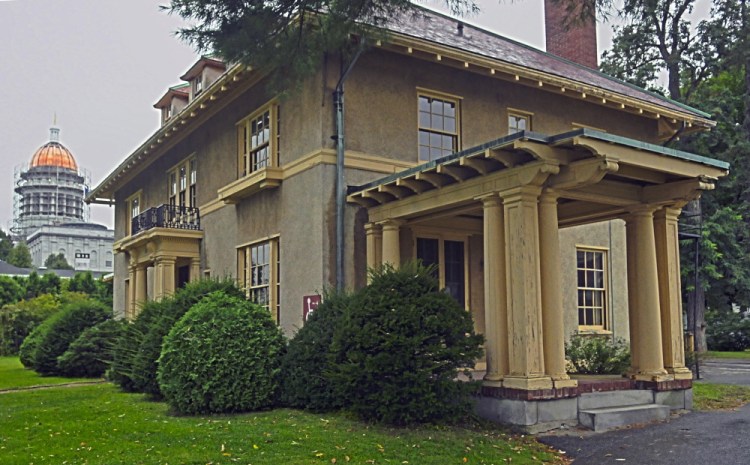
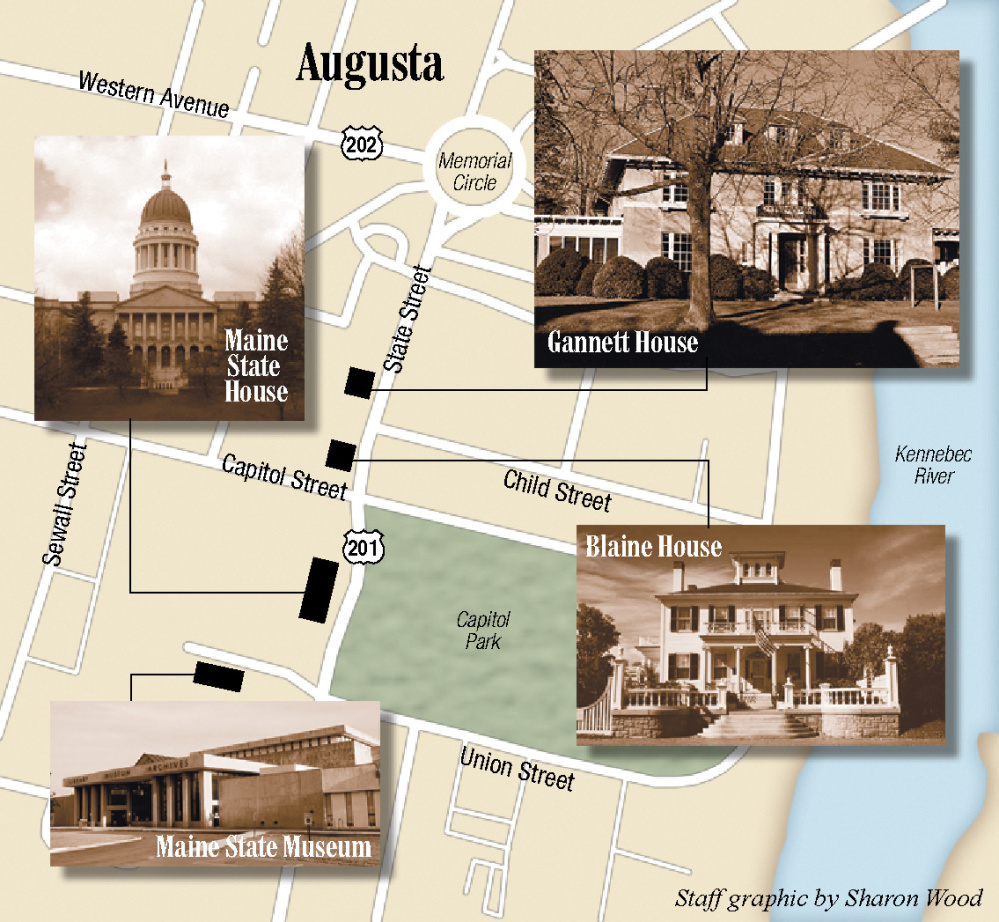
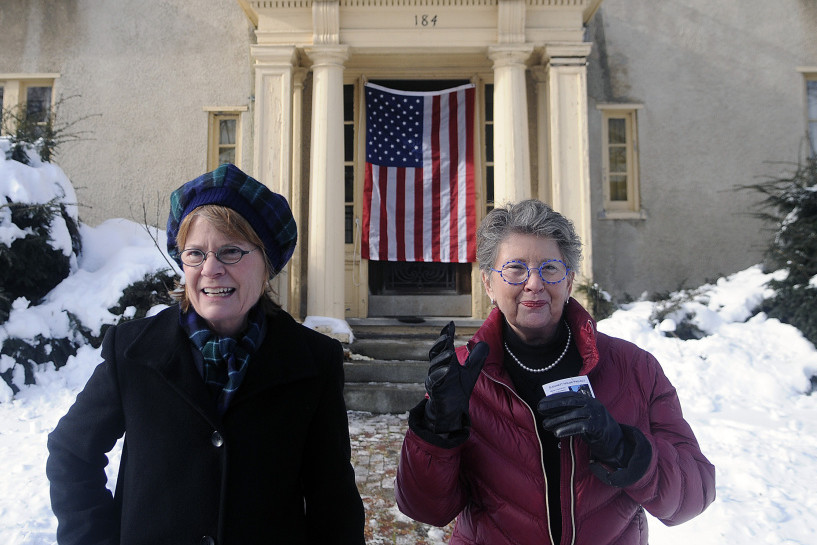
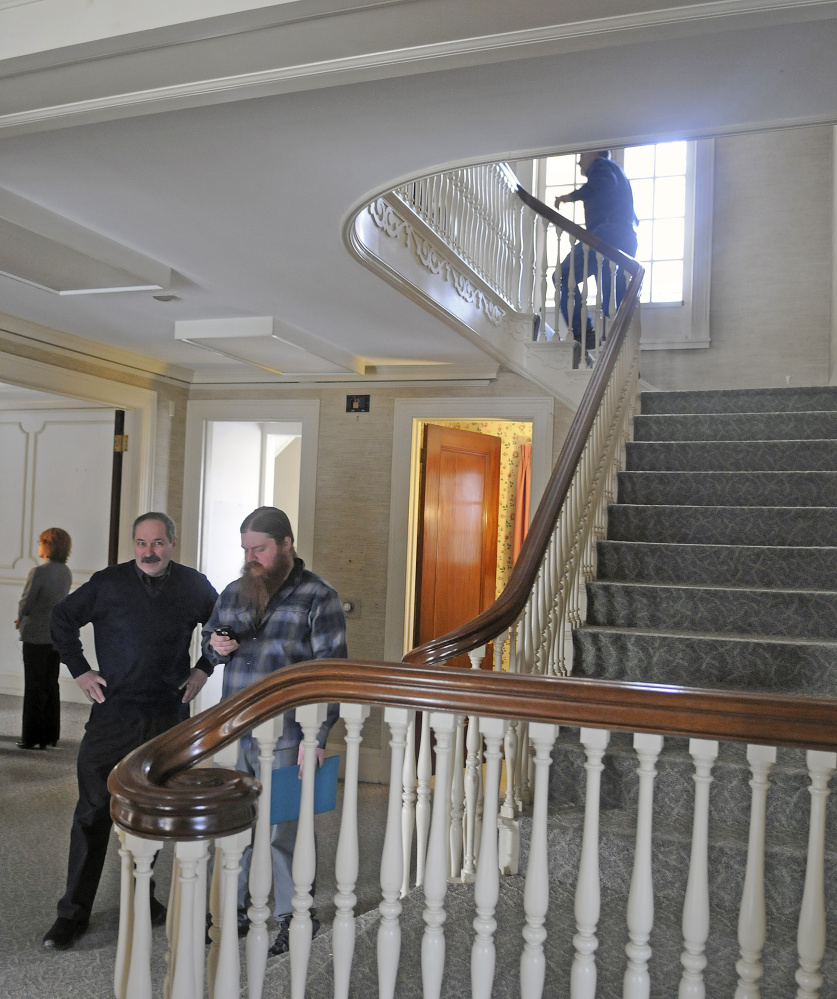
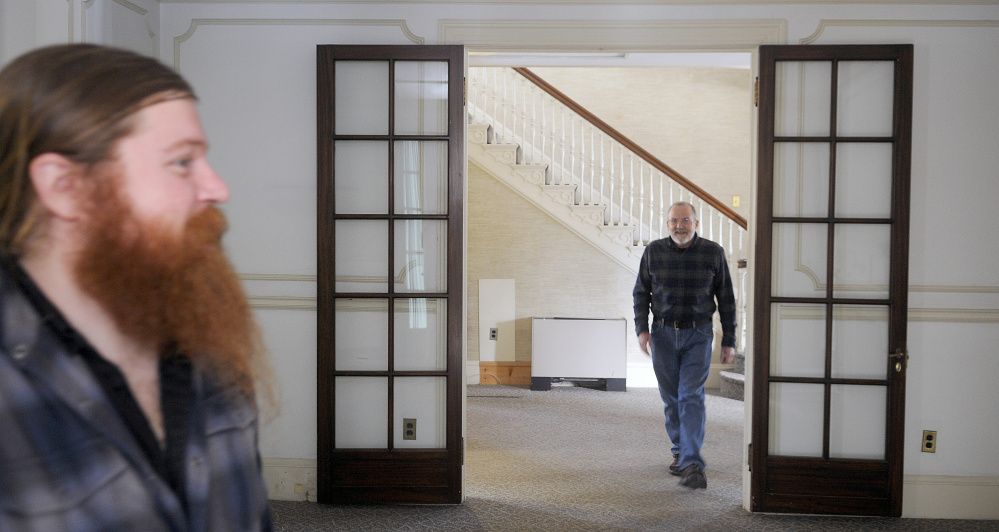

Success. Please wait for the page to reload. If the page does not reload within 5 seconds, please refresh the page.
Enter your email and password to access comments.
Hi, to comment on stories you must . This profile is in addition to your subscription and website login.
Already have a commenting profile? .
Invalid username/password.
Please check your email to confirm and complete your registration.
Only subscribers are eligible to post comments. Please subscribe or login first for digital access. Here’s why.
Use the form below to reset your password. When you've submitted your account email, we will send an email with a reset code.